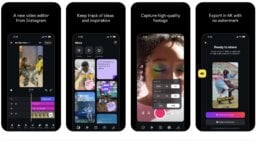Warner Music Group has become the latest major music company to announce a fresh licensing deal with Meta. The agreement will enable WMG and its artists to receive a portion of revenue from the use of licensed music on Facebook creators’ posts.
The deal was confirmed by Warner Music Group CEO Steve Cooper during an earnings call on Tuesday (August 9), nearly two weeks after rival Universal Music Group revealed that it had formed a similar partnership with the Facebook owner.
It appears that UMG’s deal with Meta was struck in calendar Q2; Warner’s quickly followed in early Q3.
Meta recently announced that it will start directly sharing a proportion of advertising revenue with music rights holders for certain user-generated video content on Facebook that is 60 seconds or longer.
Meta’s decision follows years of debate over how social media platforms like Facebook and TikTok pay publishers and record labels for the use of their music in videos and how these platforms protect the copyrights of licensed songs.
On July 25 Meta confirmed it will be giving 20% of ad revenue from eligible videos on Facebook to content creators in the US; the rest will be split between owners of music rights and Meta itself. The program is limited to Facebook at the moment; Meta has yet to announce whether the service will also be available on Instagram.
“This feature is the first of its kind within the music industry. No other platform offers creators this type of revenue model at this scale,” Meta said as it announced the move.
UMG boss, Sir Lucian Grainge, on July 27 described the program as “an exciting opportunity,” adding that it would further boost income that Universal generates from a previous licensing deal with Facebook/Meta it signed in 2017.
Speaking on Tuesday, Warner Music’s Steve Cooper confirmed that the company had also formed a similar deal with Meta.
“We have recently signed new deals with Meta that will deliver additional revenue in Q4. Our new deals include an expanded revenue-sharing model that will open up additional opportunities for both frontline and catalog artists,” Cooper told analysts during a call to discuss the company’s fiscal Q3 earnings.
The deal means that for every use of songs by Warner Music-backed artists — including Madonna, Joni Mitchell, Fleetwood Mac, Ed Sheeran, Cardi B, Lizzo, Dua Lipa and Bruno Mars — on eligible Facebook UGC videos, the music company will be earning a portion of ad revenue, although Meta has not explicitly detailed the proportion of income music companies are expected to receive.
“Our new deals include an expanded revenue-sharing model that will open up additional opportunities for both frontline and catalog artists.”
Steve Cooper, Warner Music
Warner Music’s Finance Chief, Eric Levin, said the Meta deal and other business models that WMG is exploring in the digital age – including Web3, which incorporates blockchains and cryptocurrencies and NFTs – will help the group increase revenue streams.
In the fiscal Q3 (calendar Q2) ended June 30, Warner Music Group’s revenue surged 12.1% year over year at constant currency, while net income doubled to $125 million from $61 million in the year-ago period. The company, however, said that despite continued growth in streaming revenue, it had been “affected by market-related slowdown in ad-supported revenue.”
Still, Cooper told analysts that WMG remains bullish on streaming and opportunities arising in social media.
“Streaming, our largest revenue source, has a long runway, and there’s substantial headroom for both subscriber growth and subscription fee increases. We continue to see an explosion of new opportunities in sync, social media, gaming and NFTs,” Cooper said.
While Warner Music and Universal are upbeat about the deal with Meta, Kobalt Music Publishing, which owns rights to about 700,000 songs, recently pulled its entire catalog from Facebook and Instagram in the US after it failed to reach a licensing deal with Meta, citing “fundamental differences… that we were not able to resolve.”
Kobalt’s roster of artists include Beck, Childish Gambino, Diplo, Father John Misty, Finneas, Foo Fighters, Lorde, Panic! At The Disco, Paul McCartney, Phoebe Bridges, Skrillex, Stevie Nicks, Thirty Seconds to Mars, and The Weeknd.
That decision comes amid the growing use of copyrighted music on social media platforms — sometimes without the consent of rights holders.
Sweden-based Epidemic Sound recently sued Meta, demanding $142 million in damages for allegedly using its works across Facebook and Instagram without entering a licensing deal.
“Meta has refused to enter into a license with Epidemic, even though Meta has done so with many other rights holders,” stated the company in its lawsuit.
As MBW put it in a story two weeks ago, a lot of money is at stake from Kobalt’s decision to take down its copyrighted music from Facebook (and Epidemic’s lawsuit): Facebook is estimated to have contributed 29%, or just over $400 million, of all ’emerging platform’ advertising revenues paid to the recorded music industry in 2021.Music Business Worldwide




